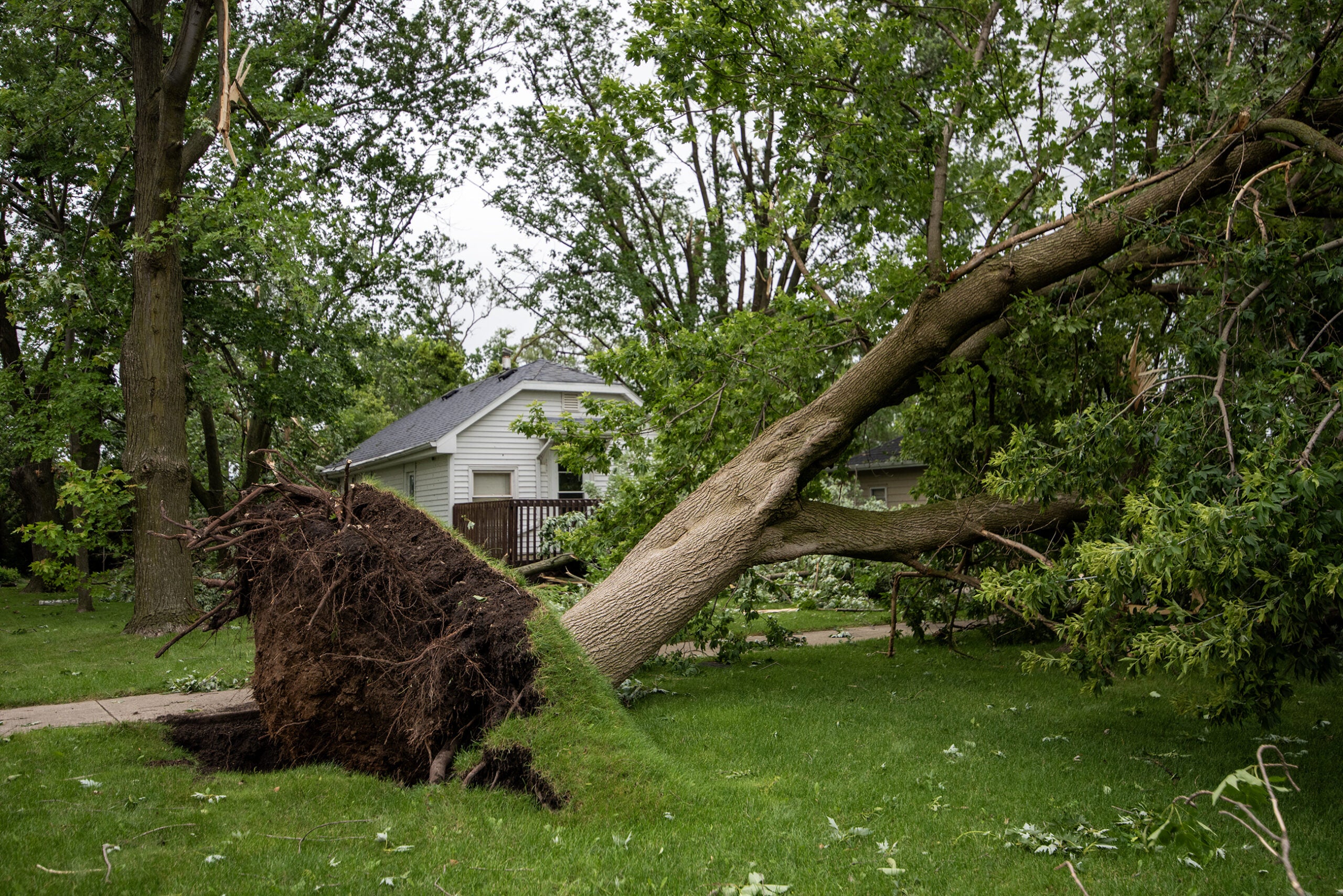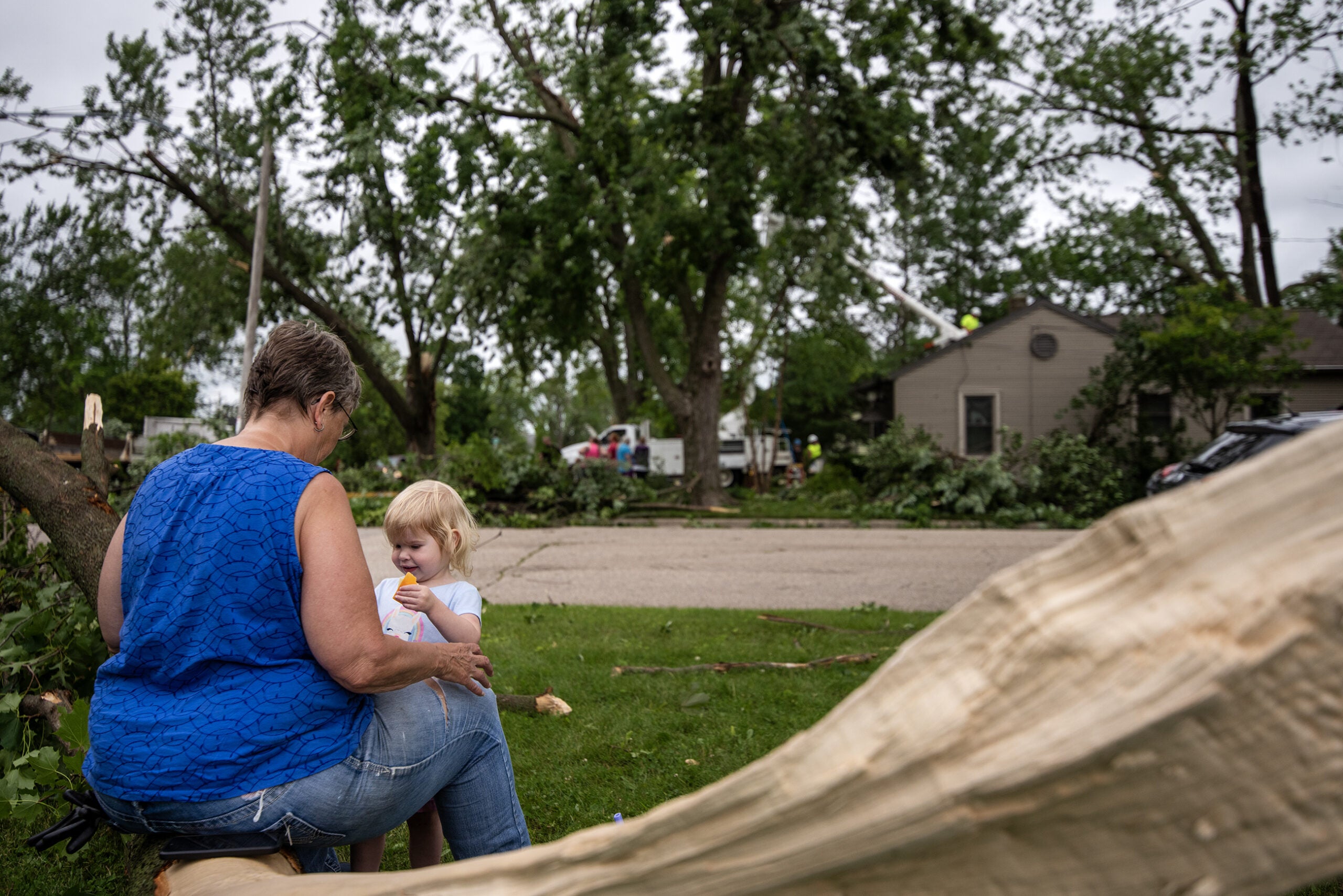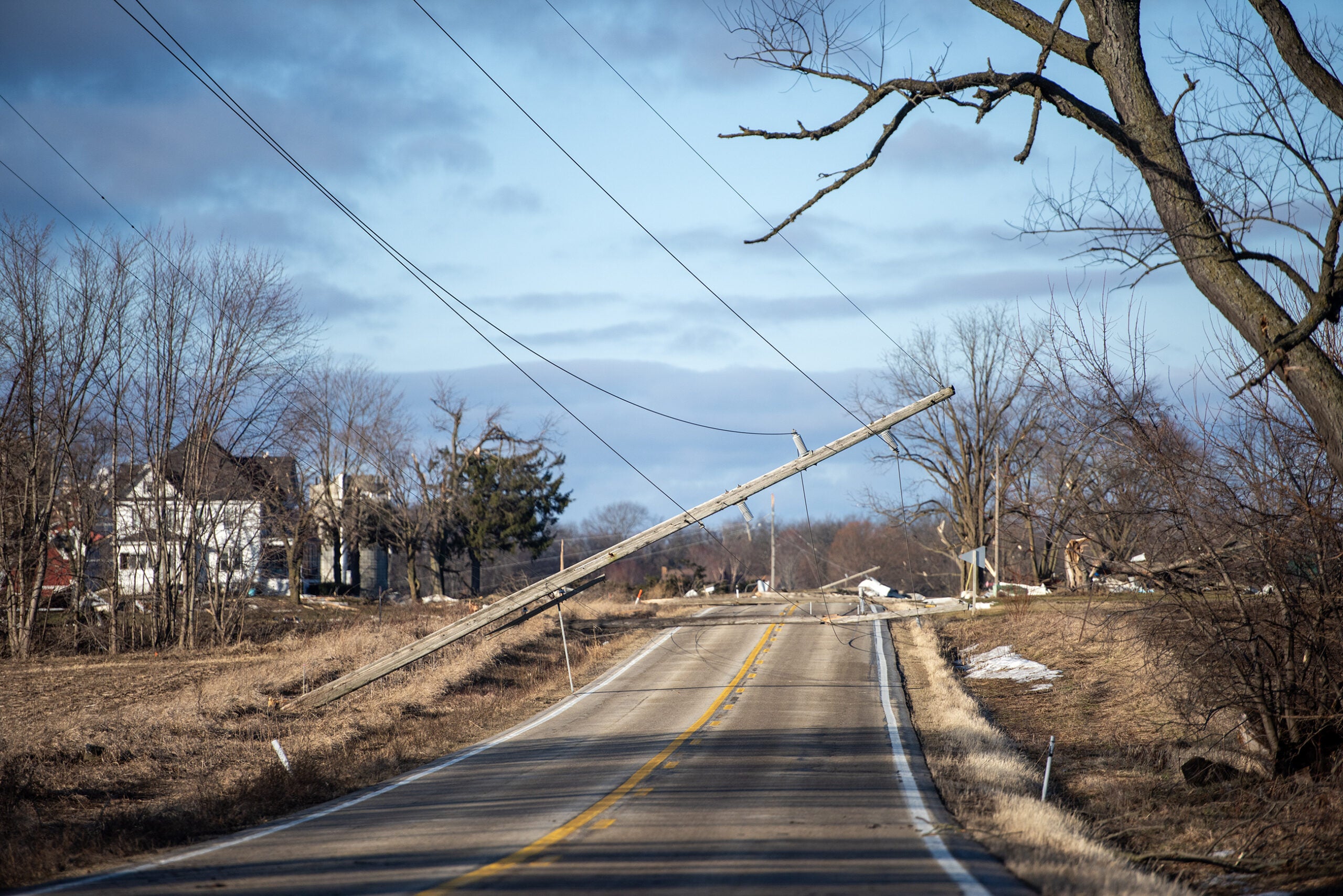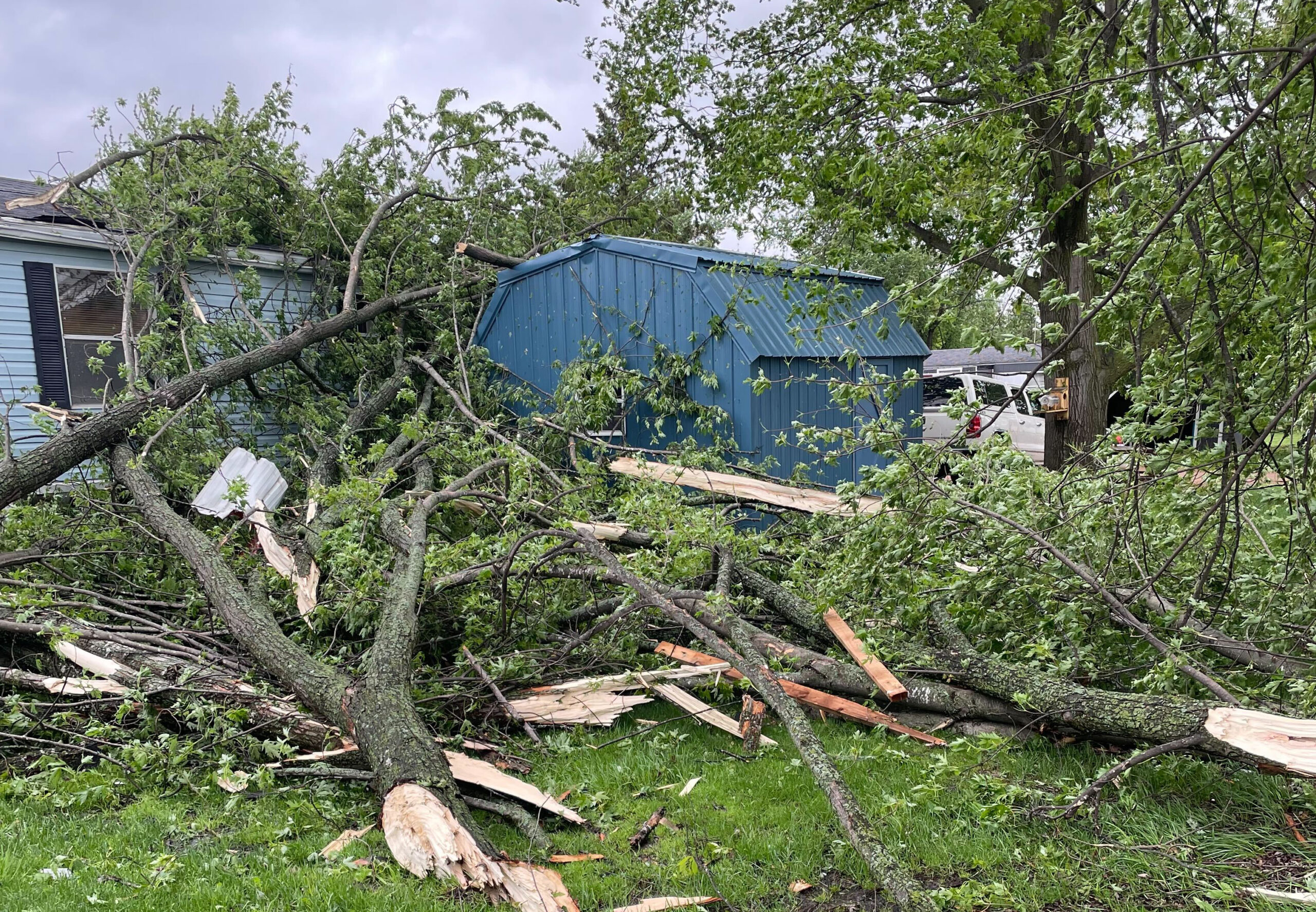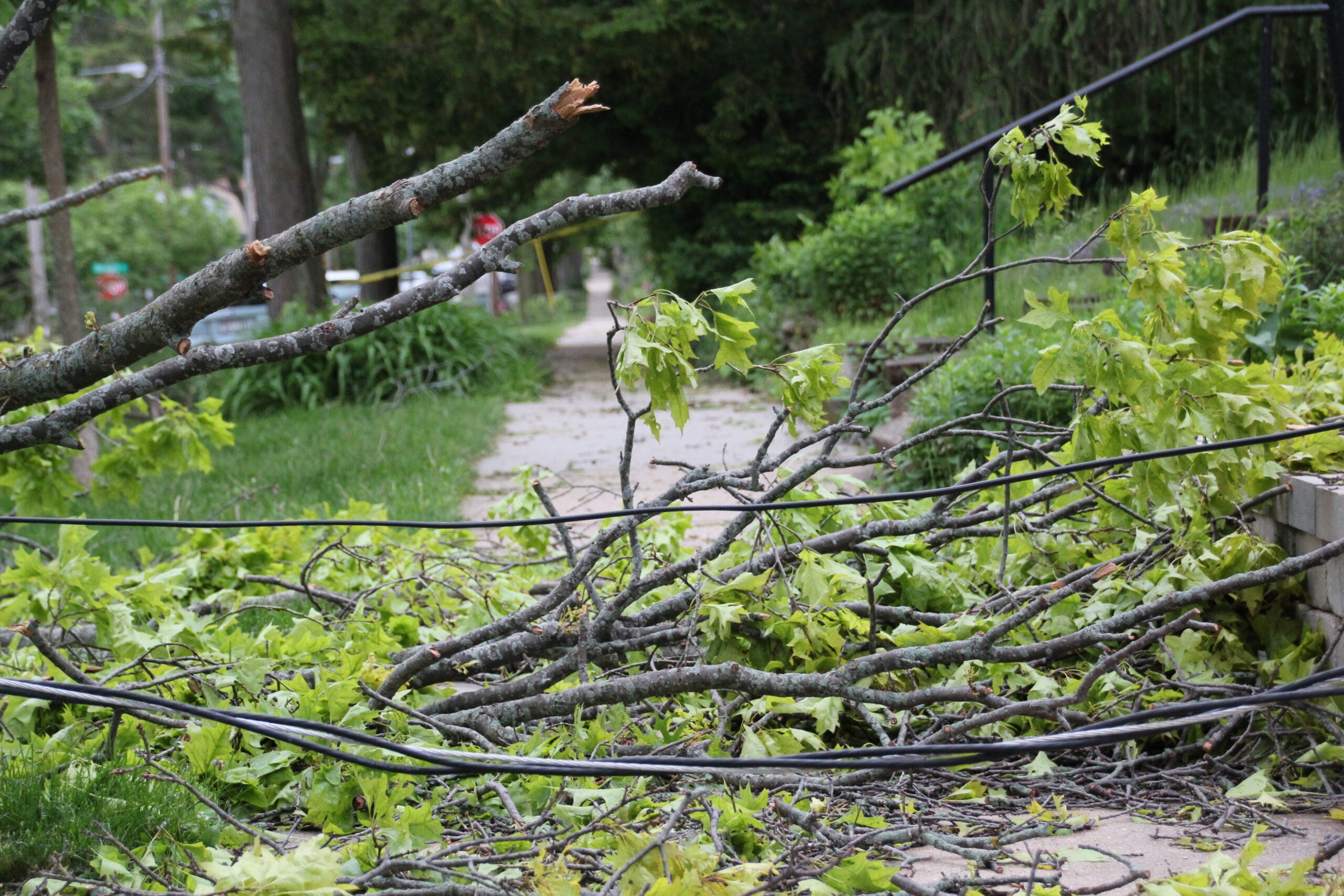How well did Governor Walker make good on his 2010 balanced budget promise? Rob Ferrett and Gene Purcell review the record. They also get a forecast for this year’s tornado season from a meteorologist and find out what’s happening in Congress.
Featured in this Show
-
Tornado Season Kicks Off In Wisconsin
With six confirmed tornadoes hitting Wisconsin this week, the season is off and running — a little later than usual.
Chad Franzen, meteorologist for WSAW-TV in Wausau, said the state’s long winter slowed down the start of tornado season.
“It took Wisconsin a really long time to really warm up and get into the warmer weather,“ Franzen said, ”So. that’s why we saw a delayed start to the summer severe weather season, which typically runs late May to the last part of July.“
That late start doesn’t necessarily translate into a shorter severe weather season. Franzen said meteorologists are watching the progress of this year’s El Niño system, which is creating conditions in the Pacific Ocean that will affect Wisconsin in the near future.
”Our summer severe weather season may be pushed into the first couple weeks of, where it traditionally maybe … ends closer to the end of July,“ he said.
Franzen is looking for an active severe weather pattern into August, with the state likely to be near its typical average of 23 to 24 tornadoes for the year.
”Of course, when you’re talking long-term patterns, certainly that can easily change,“ he said.
Digging into the science of severe weather, Franzen said that for serious storms and tornadoes to form, ”you need a clash of the air masses — you need a warm humid air mass out ahead of a system, and some kind of front or some kind of a triggering mechanism to trigger that warm humid air mass to really blow up into these thunderstorms.”
“Think of it as a pot of boiling water on the stove, and a lid on it,” he said. “Once you get a mechanism to pull the lid off, you see that rapid expanse of the gas into the air, and that’s how these thunderstorms really develop,” he said.
Franzen said the science of prediction is improving, with benefits for public safety.
“The biggest thing is being able to get the word out and get those warnings out,” he said. “The warning process for severe thunderstorms and tornado warnings has come a long ways in the last couple of years … A new Doppler radar type called ‘dual polarization’ allows you to see a little better into the storm,” he said.
Franzen’s main worry about public safety centers around night-time storms, like the one that kicked off tornado season in Wisconsin. While people can be caught unawares in their sleep, he said growing access to severe weather apps and weather radios can help get the word out.
-
Walker's Balanced Budget Promise
How well did Governor Walker follow through on his 2010 promise to balance the budget? Two experts discuss the numbers.
-
Despite A Late Start, Wisconsin's Tornado Season Isn't Expected To Be Mild
The tornado season in Wisconsin typically runs from May to July. This year we got a late start, but this week severe weather is expected statewide. A meteorologist explains the conditions that create a tornado and what we can expect from this year’s tornado season in Wisconsin.
-
This Week In Congress – June 18, 2014
USA Today Politics and Congress Editor Paul Singer joins Central Time for his weekly update on happenings in Congress.
Episode Credits
- Rob Ferrett Host
- Veronica Rueckert Host
- Chad Franzen Guest
- Jon Peacock Guest
- Paul Singer Guest
- Marika Suval Producer
- Amanda Magnus Producer
- Galen Druke Producer
Wisconsin Public Radio, © Copyright 2025, Board of Regents of the University of Wisconsin System and Wisconsin Educational Communications Board.
